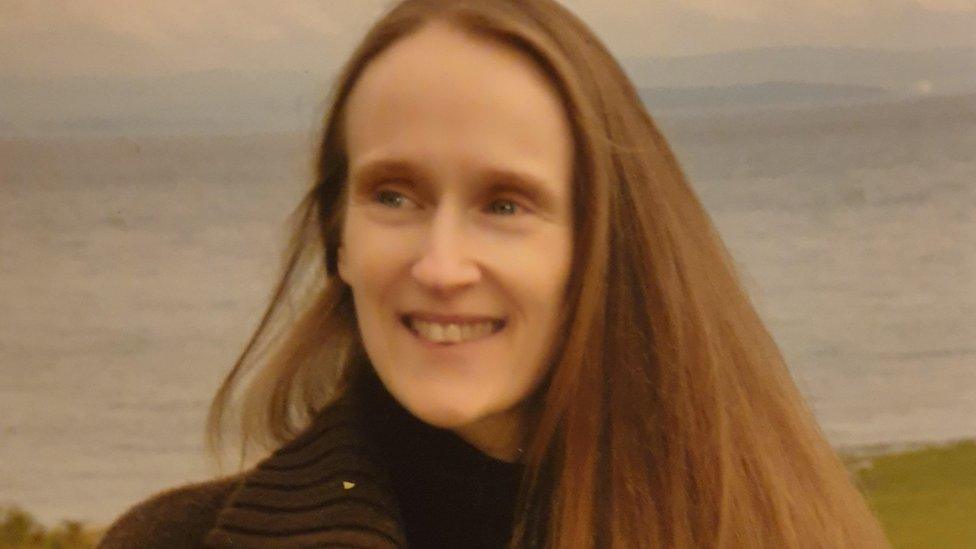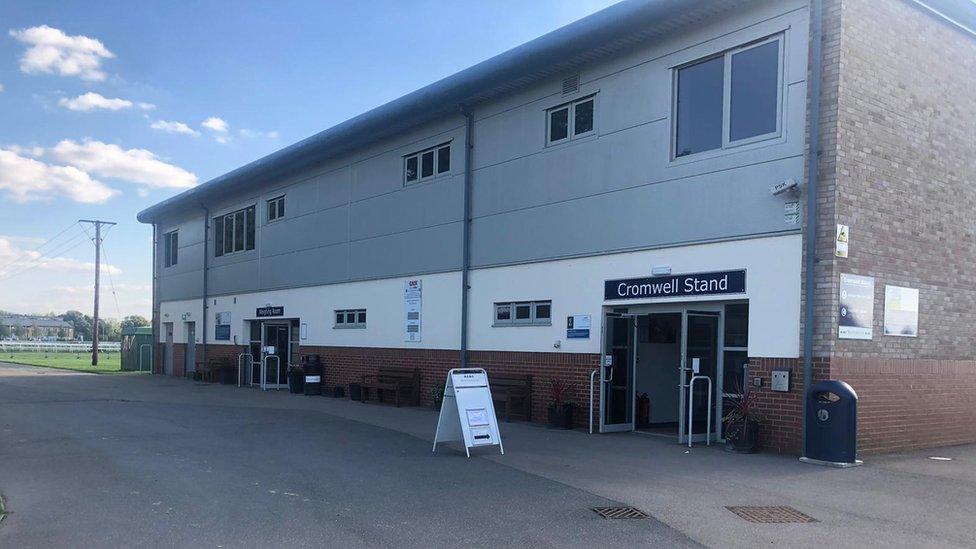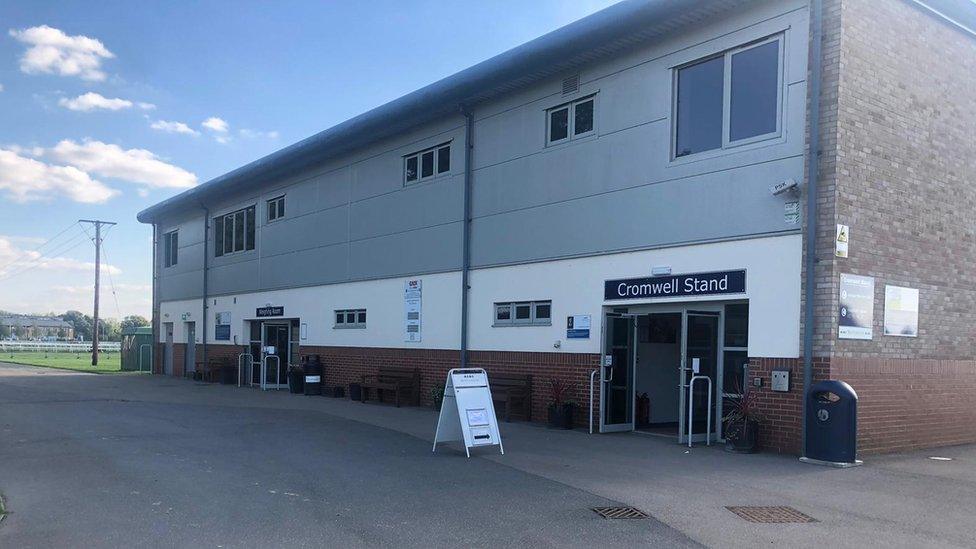Cambridge anorexic woman discharged despite 'critical' BMI
- Published

Amanda Bowles died not want her family to know about her illness
An anorexic woman was discharged from an eating disorder service despite a "critically low BMI", an inquest heard.
Amanda Bowles, 45, left the adult eating disorder service (AEDS) at Cambridge and Peterborough Foundation Trust (CPFT) in December 2016 despite them advising she needed hospital treatment.
Months later she told the service she "felt physically fragile".
She died at her Cambridge home in September 2017.
The inquest at Huntingdon Racecourse is the latest to be heard in a cluster of five deaths of people with anorexia between 2012 and 2018.
Dr Konstantions Ioannidis, a psychiatrist with the AEDS, told the coroner Ms Bowles had refused in-patient admission as she was worried her family would find out about her illness.
He said "her BMI was critically low" but she had made it clear she wanted to try to recover in the community.
"She said she wanted more time to recover on her own."
Agoraphobia
When asked by assistant coroner Sean Horstead why an involuntary admission had not been considered under the mental health act, Dr Ioannidis said she did not meet the criteria at that time.
He said it had previously been considered but at the time of discharge, Ms Bowles' weight, although low, had stabilised and they felt she would not engage if forced into hospital and so asked for medical monitoring from her GP.
The inquest was told there were additional difficulties in treating Ms Bowles as her agoraphobia meant she could not leave her home.
In April 2017, she called the AEDS saying she had not had any monitoring and said she was "struggling and with eating and concerned she was losing weight", the inquest heard.
She called again a month later and said she still had not had monitoring and that she "was finding climbing stairs difficult, felt physically fragile and had a low mood".
The AEDS wrote to her GP and requested they visit Ms Bowles at home and restart medical monitoring.
The inquest continues.
If you are affected by any of the issues in this story, you can talk in confidence to eating disorders charity Beat by calling its adult helpline on 0808 801 0677 or youth helpline on 0808 801 0711.
- Published2 September 2020

- Published1 September 2020
